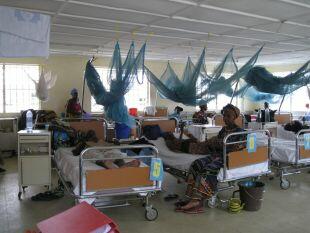
Catherine Mangham, DTMH February 2018
Until I read Kani’s “Ode to Love at DTMH” and her challenge to “reflect on the intricacies of our own love affair with our work” I had no idea what I might write about. Thank you Kani! I find I must accept the challenge to look back and see where love has guided my life.
As we peel back the onion layers of what makes us who we are, we will find increasingly complex and fascinating motives for being doctors which, as all good scientists know, will shift and change as they are unpacked and examined. Working as a doctor ticks all the boxes of Maslow’s Hierarchy of needs from putting bread on the table to lending a sense of identity, belonging and purpose to our lives.
If you think back to the times when you have felt most at one in your field of work, where does that take you?
It takes me to those moments when I have been able to give everything. I have noticed a fleeting sense of complete peace and connectedness with the patient and the team caring for them. A free flow of energy, love if you will, that is felt within and shared by all involved.
I was reminded of this by a priest in Sierra Leone, in 2004. I had been sent by MSF to Sierra Leone to be the doctor running the maternity and paediatric units in the Makeni Government Hospital. The Kenyan midwife who had been holding the fort for 6 months, needed to go home.
I had just finished my remote and rural GP training. Armed and bristling with recently acquired emergency course certificates, I was keen as mustard. As the aeroplane doors opened, and the heat, humidity and smells wafted in, I fell in love. It was 2004 and Sierra Leone was in the aftermath of a 10-year civil war and the British army, UN and NGOs were turning their muscle to development issues, not something with which MSF is comfortable, by their own admission. Our mission was to provide free maternity and paediatric services to the people of northern Bombali district. We also supported health clinics which fed patients in to the hospital. The relationship, ongoing for 10 years by then, had turned toxic and the project was failing. MSF was considering pulling out of Sierra Leone completely by 2007. I realised nothing of this and had no experience with which to judge any of what I was seeing or hearing. I loved everything about Africa including the work with a passion. Learning to dance, play football and having a laugh with the nurses was as important to me as delivering babies and working towards lowering the death rate in the paediatric unit.
For me, nothing works without God on board and nothing is impossible with Him and so I attended weekly Mass at the Catholic Cathedral in Makeni and forged a friendship with the priest and those who had real influence in the community. They were a great support to me during this time, and included me as a member of the community.
Many challenges came our way, too many to describe here, but the support of the community helped those working in the maternity and paediatric units though these incredibly difficult times.
I look back on my final month in Sierra Leone, with considerable fondness, lots of bellyaching laughter was had and I even enjoyed a wonderful day off (the first) swimming in Bumbuna waterfalls with our whole team.
I remember almost every moment of that 6 months in 2004. It was the best of times, and it was the worst of times due to considerable difficulties we faced; but the peace of knowing that I had given more than I knew I had to give, and the laughter and fun we had, and the absolute joy of cuddling babies, will stay with me for ever.
Moving forward to present day, I now have the time and freedom to think about voluntary work again. I have always wanted to take the DTMH course and I have had very good reports from alumni of LSTM. So much has changed since 2004, we were not even testing for HIV in Sierra Leone due to the lack of available treatment. In addition, the possibility of advice and support via the internet from contacts made on the course, might be life saving for some of my patients as well as for my own happiness and sanity when in the field.
For a light hearted read about working in Sierra Leone, I recommend a book by a friend of mine who spent 2 years working for VSO in 1990s.
Green Oranges on Lion Mountain by Emily Joy